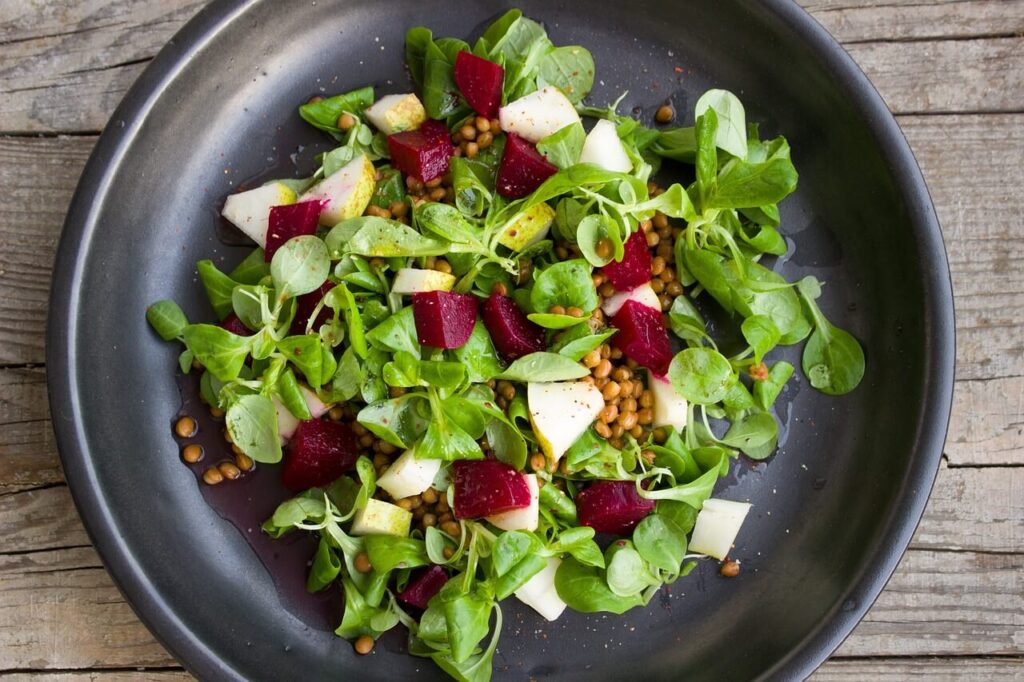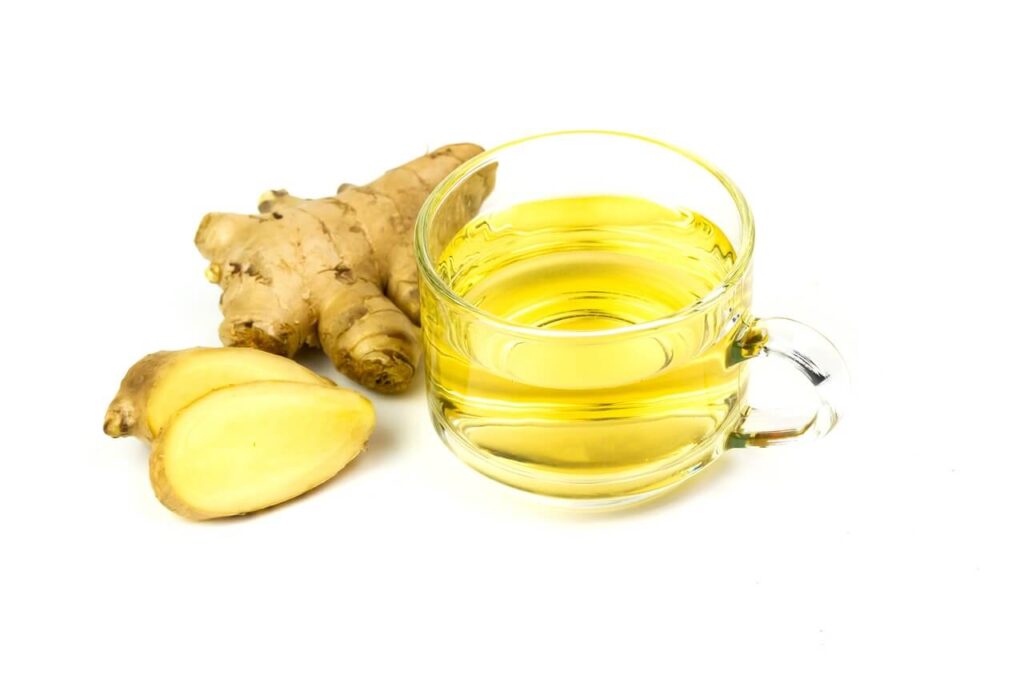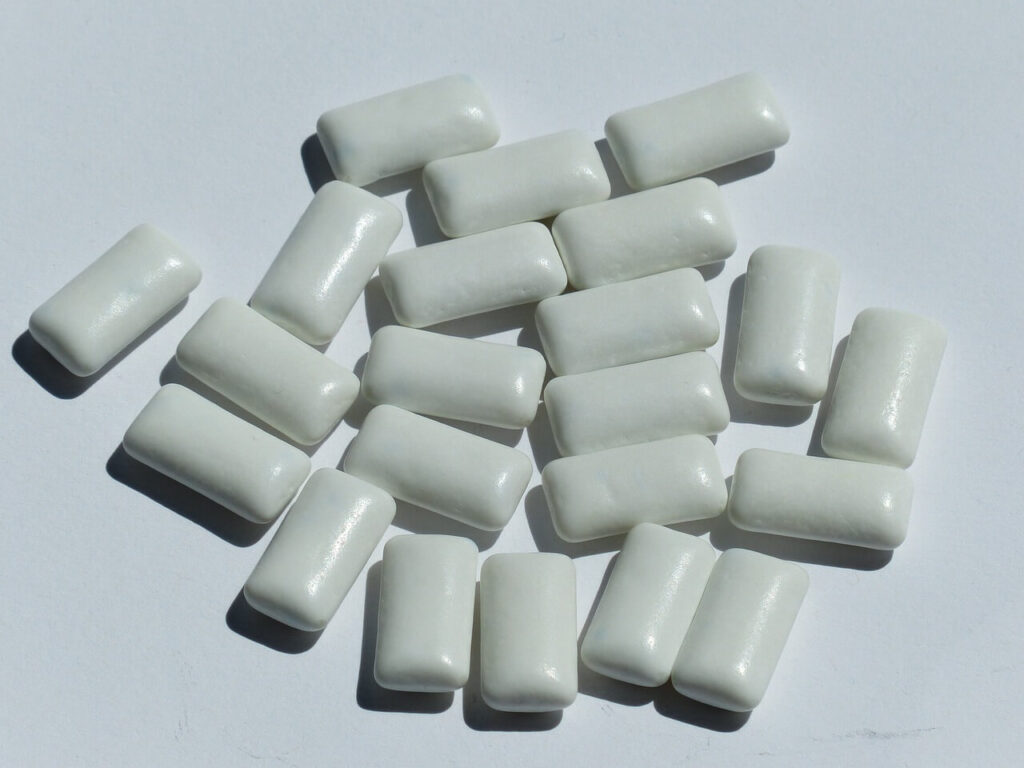Many people deal with heartburn from time to time. Especially during the holidays, when alcohol, rich foods, and overeating amp up. But for people with GERD, heartburn isn’t just a holiday occasion. It’s a daily struggle.
Living with GERD can be frustrating and uncomfortable. And while over-the-counter and prescription meds can offer relief, relying on them long-term can be risky.
The good news? Many natural remedies for GERD can ease symptoms. Keep reading to learn the best at-home remedies to calm GERD down.
But first, let’s quickly recap what GERD is, and why it happens.
What is GERD?
Gastroesophageal reflux disease (GERD) is a digestive disorder that affects about 20% of Americans. If heartburn hits at least twice a week, you could have GERD. It’s caused by a problem with the lower esophageal sphincter muscle (LES).
Your LES is a ring of muscle where your stomach and esophagus meet. It acts like a valve, opening to allow food into your stomach. Once you’re done eating or drinking, it closes.
But sometimes the LES weakens or doesn’t shut tightly enough. This can cause stomach acid to rise up into your esophagus, known as acid reflux.
Acid reflux feels like a burning sensation in your chest, just behind your sternum. That’s why it earned the nickname “heartburn.”
Heartburn is the classic sign of GERD and can last for several hours. But it’s not the only symptom.
Other potential GERD symptoms include:
- Bitter or sour taste
- Backwash into your throat or mouth
- Nausea
- Vomiting
- Chest pain
- Sore throat
- Shortness of breath
- Coughing
- Trouble swallowing
- Feeling like a lump is in your throat
Risk factors for GERD
So how does GERD happen? Well, several things can weaken the LES muscle and increase the risk of GERD including:
- Hiatal hernia
- Pregnancy
- Smoking
- Alcohol and carbonated drinks
- Being overweight or obese
- Fatty foods
- Certain medications like benzodiazepines, calcium channel blockers, tricyclic antidepressants, nonsteroidal anti-inflammatory drugs (NSAIDs) like aspirin, and some asthma meds
Medical treatment for GERD consists of medications like antacids or proton pump inhibitors (PPIs).
And yes, antacids offer quick relief. But overuse can lead to nutrient deficiencies. Taking PPIs long-term is risky too. It can increase the risk of kidney issues, heart disease, infections, gastric cancer, and even dementia.
Luckily, you don’t have to reach for antacids to manage GERD. Many home remedies can also help tame acid reflux.
Natural Home Remedies for GERD
Here are 11 natural ways to relieve heartburn and ease GERD symptoms:
1 – Eat a GERD-friendly diet
What you eat can either aggravate heartburn or help tone it down. Certain foods relax the LES muscle or slow down digestion, which can set the stage for acid reflux.

Common trigger foods include:
- Fatty or greasy foods, like fast food or fatty cuts of meat
- Fried foods
- Spicy foods
- Alcohol
- Coffee, tea, and other caffeinated drinks
- Tomatoes and tomato-based products
- Soda and other carbonated beverages
- Citrus fruits and juices
- Garlic and onions
- Chocolate
- Peppermint
That doesn’t mean you have to nix these foods altogether. Just be mindful and don’t overdo it. Keeping a food journal can help you pinpoint your biggest culprits.
On the flip side, some foods can be helpful for GERD. For example, alkaline foods have a high pH and may help neutralize stomach acid.
Alkaline foods to put on your plate include:
- Leafy greens like spinach and kale
- Cruciferous veggies like broccoli and cauliflower
- Bananas
- Melons
- Avocados
- Cucumbers
- Celery
- Asparagus
- Pumpkin seeds
- Almonds
Other helpful foods for GERD include:
- Fiber-rich foods like whole grains and vegetables
- Lower-fat protein choices like skinless chicken, turkey, eggs, tofu, and legumes
- Non-citrus fruits like berries, cherries, apples, and mango
- Non-carbonated drinks like herbal tea and coconut water
- Yogurt
2 – Eat smaller meals
Eating big, heavy meals puts extra pressure on your LES muscle. This can make it easier for stomach acid to creep up and cause heartburn. To prevent this, aim to eat smaller, more frequent meals.
Also, be sure to chew your food well. Ideally, until it’s the consistency of applesauce. Chewing your food thoroughly boosts saliva production. This dilutes your stomach acid and improves digestion. Win-win!
3 – Don’t lie down after eating
Staying upright after meals can also help keep GERD in check. Lying down after you eat puts pressure on your LES muscle, making it easier for stomach acid to rise.
If possible, try to avoid lying down flat for 2-3 hours after meals. This may mean eating dinner earlier and passing on late-night snacks. When you do eat close to bedtime, using a wedge pillow may help.
4 – Take a swig of apple cider vinegar
Apple cider vinegar (ACV) is a popular folk remedy for acid reflux. While there isn’t any research to prove it works, many people swear by it.

To test it out, mix a spoonful of ACV in a glass of water and drink it with meals. Bonus? Consuming vinegar with meals may help lower your blood sugar too.
5 – Sip some ginger tea

Ginger tea is another old-fashioned heartburn remedy. It’s been used for centuries to ease nausea, bloating, and other digestive issues. Its anti-inflammatory properties may reduce the production of gastric acid.
Ginger also increases gastric emptying. Meaning, it helps food move from your stomach into your small intestine more quickly. The faster your stomach empties, the less likely its contents will back up into your esophagus.

6 – Ditch tight clothes
Skinny jeans are out – and that’s good news for GERD. Anything that squeezes your stomach, whether a tight belt, elastic waistband, or shapewear, can trigger heartburn.
Tight clothing puts pressure on your abdomen, which can force stomach acid into your esophagus. Wearing loose, comfortable clothing is an easy way to prevent this.
7 – Maintain a healthy weight
As your weight increases, so does your risk of GERD. Being overweight or obese puts extra pressure on the abdomen and can weaken your LES muscle.
That said, weight loss is easier said than done. So if you want to lose weight but could use some support, the Shape ReClaimed program may help. Learn more about it here.
8 – Chew gum after meals

hewing gum may also help tame GERD. When you chew gum after meals, it increases saliva production. And saliva helps neutralize stomach acid.
To give it a shot, chew some gum for 30 minutes after your next meal. Opt for sugar-free gum sweetened with xylitol. Ideally, mint-free options like this one.
9 – Try relaxation techniques
Keeping stress in check may help keep GERD in check. Stress increases the production of stomach acid, making heartburn more likely.
To get a handle on stress, set aside time for daily relaxation. Here are a few relaxation techniques that are proven stress-busters:
- Diaphragmatic breathing
- Mindfulness meditation
- Progressive muscle relaxation
- Yoga
- Spending time in nature
10 – Supplements for GERD
Certain supplements may offer natural relief for GERD too. Here are a few nutritional and herbal remedies for heartburn worth trying:
- Alginates come from seaweed. They form a gel-like barrier to prevent stomach acid from creeping back into your esophagus. Alginates are shown to be just as effective as antacids at reducing GERD symptoms. I recommend this one.
- Aloe vera soothes the esophagus and may help ease heartburn, nausea, and other GERD symptoms.
- Deglycyrrhizinated licorice root (DGL) is a demulcent. This means it soothes and protects mucous membranes, including the lining of your esophagus.
- Marshmallow root is an herb that contains mucilage. This thick gel-like substance can act as a protective barrier in your digestive tract and ease heartburn.
- Slippery elm is another mucilage-containing herb that may soothe the esophagus to reduce acid reflux.
- Herbal bitters are often used to stimulate digestion. But they may be beneficial for GERD too. They increase saliva production, which acts as a buffer to stomach acid. My top picks for GERD are Quicksilver Bitters No. 9 and Bitter X. We offer both at Anchored in Health).
11 – Acupuncture for GERD
Acupuncture isn’t a home remedy. But it also shows promise as a safe and effective GERD treatment. It reduces inflammation and helps calm the nervous system, which may ease acid reflux.

One study found acupuncture reduced heartburn just as well as a proton pump inhibitor. Best of all, unlike PPIs, acupuncture has no serious side effects. It’s also shown to ease GERD symptoms when PPIs don’t offer enough relief.
Relieve Heartburn Naturally with An Acupuncturist in Orland Park, IL
Living with GERD is tough. But it doesn’t have to be a life sentence. With some simple diet and lifestyle shifts, relief is possible.
The natural remedies above can help reduce acid reflux, so you can enjoy more of life! But if you try the tips we covered and are still struggling, acupuncture may help.
So if you live in the Chicago area and are looking for natural relief for GERD, follow these steps:
- Contact us with questions.
- Book your first acupuncture appointment here.
- Experience how acupuncture can help you get rid of heartburn naturally – so you can live life more fully.
Other Alternative Health Services Offered at Anchored in Health in Orland Park, IL
At Anchored in Health, we provide a wide range of services to enhance your health and well-being. This includes chiropractic care, functional medicine, massage therapy, and the Shape ReClaimed program. We also offer functional assessments like thermography and genetic testing. Contact us to find out how we can support you to feel your best!
Disclaimer: The information provided on this blog is for educational and informational purposes only and is not intended to diagnose, treat, cure, or prevent any disease. The content is not a substitute for professional medical advice, diagnosis, or treatment. Always seek the guidance of a qualified healthcare provider with any questions you may have regarding your health or a medical condition.
Reading this blog does not establish a doctor-patient relationship between you and Anchored In Health or any of its practitioners. Reliance on any information provided in this blog is solely at your own risk. For medical concerns, always consult a licensed healthcare provider.
Sources
- https://www.yalemedicine.org/conditions/gerd-gastroesophageal-reflux-disease
- https://my.clevelandclinic.org/health/diseases/17019-acid-reflux-gerd
- https://www.ncbi.nlm.nih.gov/pmc/articles/PMC10458865/
- https://www.ncbi.nlm.nih.gov/pmc/articles/PMC10248387/
- https://www.ncbi.nlm.nih.gov/pmc/articles/PMC3920303/
- https://www.ncbi.nlm.nih.gov/books/NBK499926/
- https://pubmed.ncbi.nlm.nih.gov/33009052/
- https://link.springer.com/article/10.1007/s12664-019-00940-z
- https://www.ncbi.nlm.nih.gov/pmc/articles/PMC8272667/
- https://www.ncbi.nlm.nih.gov/pmc/articles/PMC3193654/
- https://www.ncbi.nlm.nih.gov/pmc/articles/PMC5981243/
- https://www.nature.com/articles/ncpgasthep1014
- https://www.ncbi.nlm.nih.gov/pmc/articles/PMC6036656/
- https://www.sciencedirect.com/science/article/pii/S0254627215301515
- https://onlinelibrary.wiley.com/doi/10.1111/ajco.12295
- https://www.mdpi.com/2072-6643/14/3/672
- https://pubmed.ncbi.nlm.nih.gov/20697939/
- https://www.ncbi.nlm.nih.gov/pmc/articles/PMC8822151/

[…] more insights into natural remedies for managing GERD symptoms, consider exploring apple cider vinegar as a potential […]